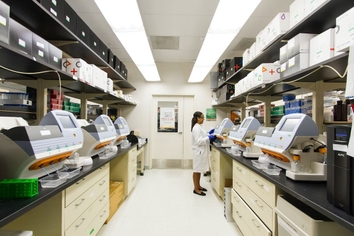
My Workstory: Earning $215,000 as a Product Manager

We’re back with another installment of My Workstory: VisualCV’s project to spotlight women from different backgrounds, industries, and environments, sharing exactly how they got to where they are today. Despite their variety of experiences, all of the women you’ll hear from throughout this series have one thing in common: they’re high-earners who’ve put in the work to climb the ranks and want to share advice for getting there too.
In the US, women make up less than 20% of six-figure earners. We’ll be speaking to several people who fall into that category over the course of this series, and sharing plenty of interview, resume, and career advice from both our subjects and our resume experts.

Quick Facts
Name: A Age: Early 30s Location: Texas Job Title: Product Manager Salary: $215,500
For a lot of people, A’s workstory is an ideal: a high-earner working in her field, with a paid-off student loan? Pinch us, we’re dreaming!
But is it all a dream for A? “In my dream job, I’d have more autonomy than my current role,” she shares. “I’m a manager and would be happy in most positions, as long as I continue to learn and have clear expectations.” But that’s not to say that A isn’t happy with her progress to date, or the benefits that come with being a high earner. She feels as though she makes “enough” money, which, to her, means “not worrying about what food to buy or whether or not we will be in a bad position financially with just one false move.” While that standard may seem low to some from a high earner, a recent survey found that nearly 60% of Americans live paycheck to paycheck. A’s right – for most Americans, one financial mistake could have a massive negative impact on their lives.
The path to your dream job may not always be easy or linear. In fact, almost 30% of people have completely changed fields since their first job after college. Working in your field and forming preferences, skills, and that all-important network can help determine a path, and, ultimately, form your workstory.
To Job-Hop or Not to Job-Hop
While A’s worked in a wide variety of roles throughout her career, she’s in a fairly unique position amongst Millennials; she’s been with the same company since college. After graduating, she started her first job as a field engineer in the energy industry, earning $60,000 plus living expenses. This job was part of a rotational program, getting trained in her industry. Graduate programs like A’s can be an incredible way for people new to the workforce to gain a deep understanding of their industry, while still working and earning full-time. The benefits go both ways, too; one study in the UK, where graduate programs are more common, saw employee retention rates of an average 86% after three years.
A is clearly part of that majority, but is there anything that surprised her about her rotational program? “I was a little surprised by how much engineering I wasn’t doing,” she shares. “I really didn’t like lab work, which was a bit of a surprise, because I never had any issues with it in college. But there’s a difference [between] experimentation vs. routine lab tests. I’ve always been a fan of learning what you don’t like and the rotational program was great for that.”
Just because A’s career has been centered around one company doesn’t mean she hasn’t made big changes throughout her workstory. During her rotational program, for example, “I really enjoyed teams more based on the people I was working for - and that largely influenced which role I took after completing the program. I took a position that was less ‘lucrative’ for my career in the short-term so that I could work for a manager I really respected and [who] was technically competent - even though the role was in sales. [...] I have 0 regrets about that decision.”

Striking a Balance
While A’s college experience certainly prepared her for her current career, she had actually anticipated studying a different type of engineering when she began. She then decided to take a more broad approach, working and learning as much as she could in her field. “I am still doing that, but working on integrating more non-work things into my life.”
What does a healthy work-life balance look like for A? “For me, non-work things are mostly more time with friends, family, and community. This includes working more closely with non-profits, having more board game nights, and going on more trips to spend time with the people I love. I tend to dive into work very deeply and it takes me a while to change out of work/productivity modes and actually relax or rest. Work in general has actually had a positive effect on my personal life in the sense that I feel financially secure, have some of my closest friends through work, and get to indulge in one of my favorite activities at a reduced personal rate: travel!”
Money Talks
Possibly even more enviable than her status as a high-earner is the fact that A has paid off her student loans. How did she do it? She describes the process as “pretty smooth,” having taken four years to repay the loan entirely. “I only had $20,000 in student loans because I chose to go to an in-state school,” she shares. “I was dependent on scholarships and loans; my parents couldn’t pay for any aspect of my secondary education. The rotational program covered all of my living expenses, unless I was on vacation. I could have paid off my student loans within the first two years, but I had limited knowledge of finances at the time and was enjoying access to real money for the first time in my life.”
So what did she spend her money on in those first two years? “I did the basics, like putting enough in my 401k to get the company match (but not a penny more!) and saving about 10% of each paycheck (mostly for vacations). However, I was also able to do some really good things, like support a friend going through graduate school who needed a few hundred extra per month when their housing situation changed mid-year.”
Our Questions, Her Answers
- Did you take out student loans? What’s your relationship like with that loan today?
“Yes. I paid everything off within 4 years of payments starting. I’m very grateful to have had an option to get through school, especially since I didn’t have to take out too much money (about $20,000), but I worked all through school.”
- What do you believe is the biggest thing that’s held you back throughout your career?
"I like to help people, and while that’s been generally good for my career and growing a supportive network, it also means I have less time to work on my own projects. Sometimes I also get many requests for help all at once and it can be a bit overwhelming."
- What do you believe is the biggest thing that’s propelled you forward in your career?
"I generally take pretty good notes and my recall ability is fairly good because of it. I think it has helped me in a few ways:
-
People know I’m listening to them, and people like that.
-
I come off as “sharp” (because I am) but it comes across more clearly. I also take the time to understand and be able to discuss these topics.
-
I think it helps me be pretty efficient because I can get back to a previous subject rather quickly"
-
What is one interesting fact, good or bad, that surprised you about your job or your industry?
"Energy has a huge impact on the quality of life for every person on the planet; you don’t realize that until you go without it for a while."
- How many jobs in your field have you had so far?
"6."

Written By
Maggie Horne
Content Manager & Resume Expert
Maggie is the Content Manager at VisualCV, with years of experience creating easy-to-understand resume guides, blogs, and career marketing content. Now, she loves helping people learn how to leverage their skills to start their dream jobs.

VisualCV is back with another edition of My Workstory! Today, we're profiling R, a First Officer at a legacy airline earning $90,000 a year.
August 21, 2023
Read Post

Content Manager & Resume Expert

VisualCV is back with another installment of My Workstory. We’ll be profiling women from different backgrounds, industries, and environments, sharing exactly how they got to where they are today.
April 22, 2023
Read Post

Content Manager & Resume Expert

On this International Women’s Day, VisualCV is proud to begin a new series about women and their work stories. We’ll be profiling women from different backgrounds, industries, and environments, sharing exactly how they got to where they are today.
March 8, 2023
Read Post

Content Manager & Resume Expert
Copyright ©2024 Workstory Inc.